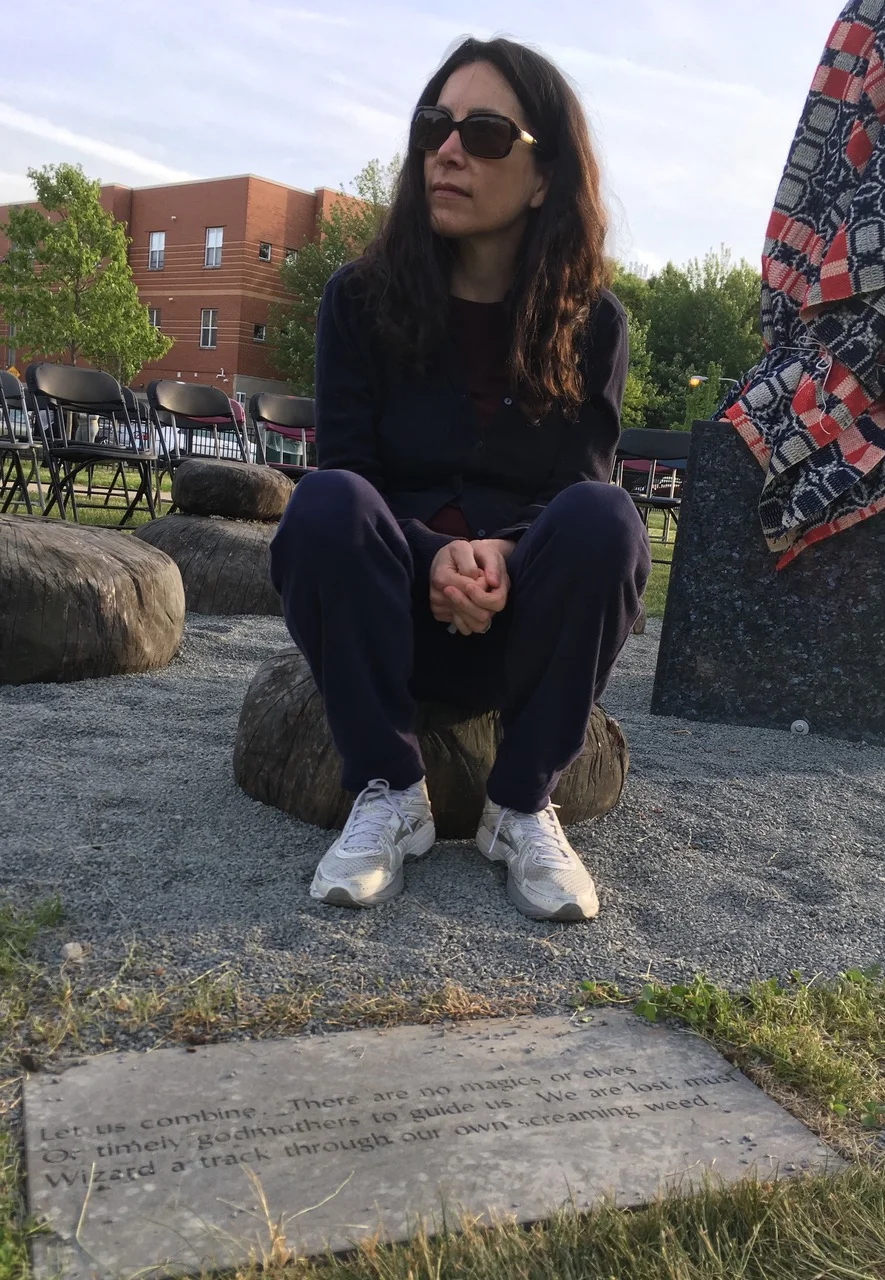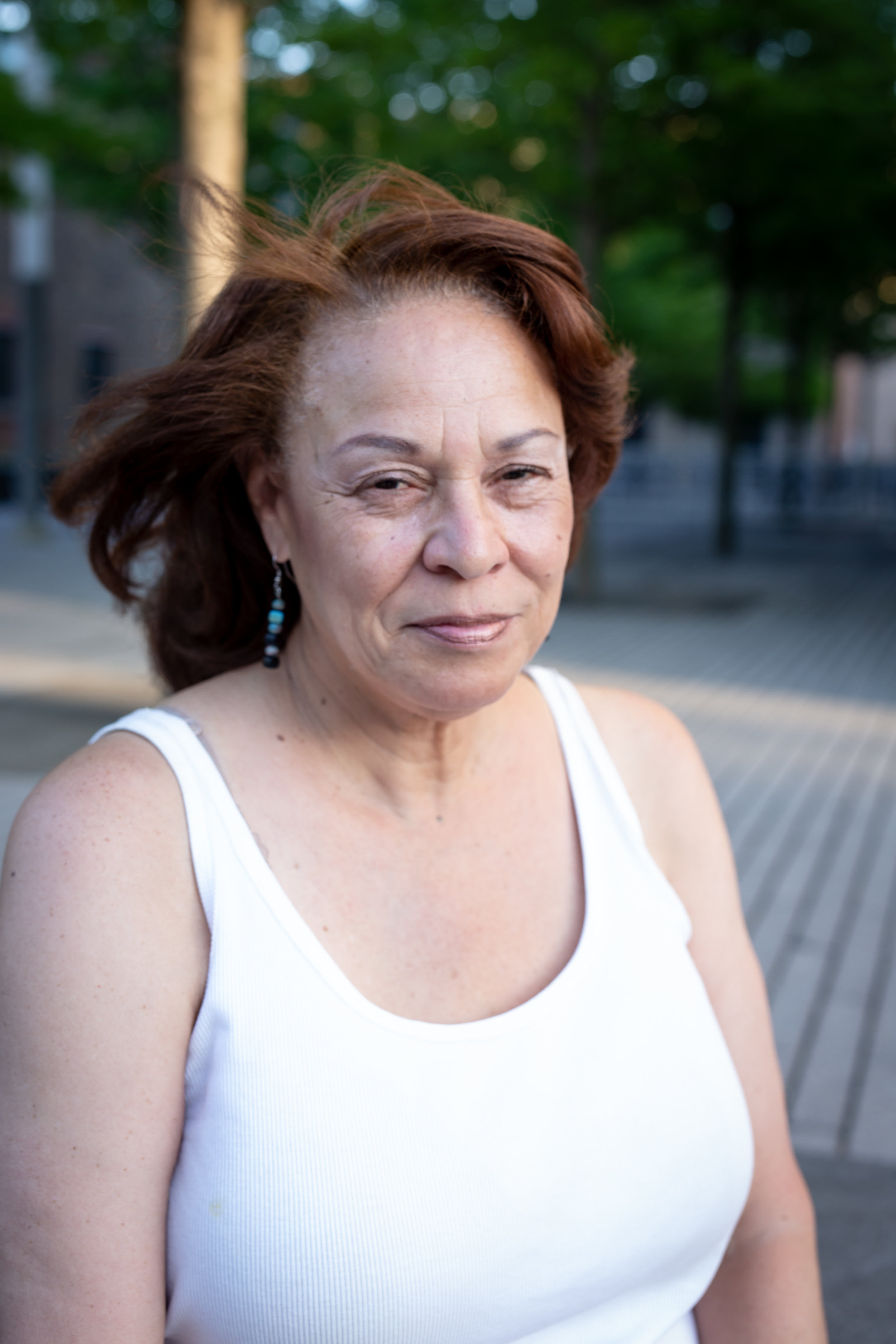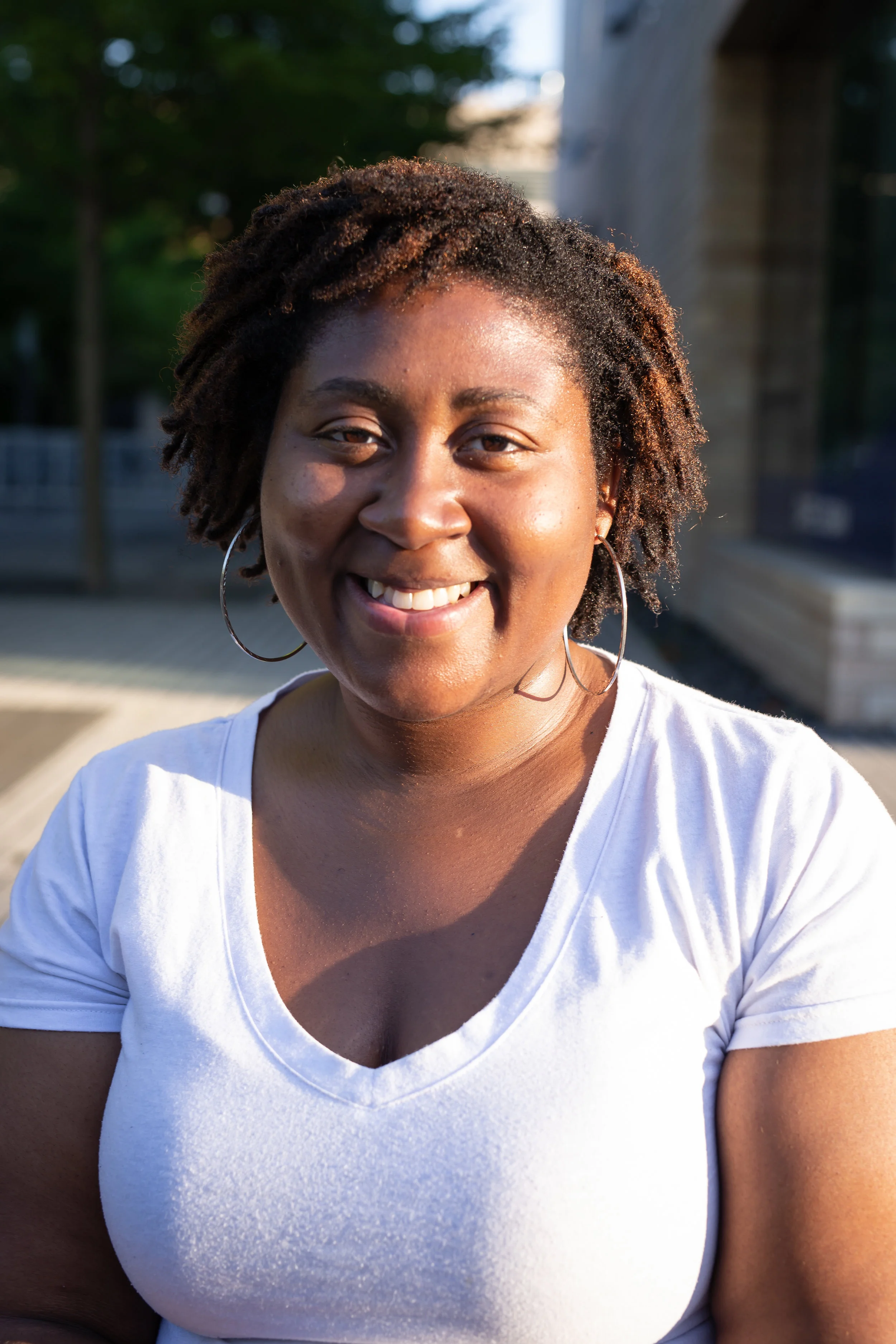Meet the Digital Storytelling Initiative's Production Institute Class of 2019
South Side cycling culture. Visual artist Arthur Wright. The NAACP's ACT-SO competition. The neighborhood barbershop. Fictional narratives tackling trauma, queerness, and age.
These are just some of the project topics that the first cohort of students in the Logan Center for the Arts’ Production Institute plan to explore in the 17-week film program. Developed in partnership with the Community Film Workshop of Chicago, the Production Institute is a part of the Logan Center’s Digital Storytelling Initiative, a program of the Jonathan Logan Family Foundation Media Center and Logan Center Community Arts. The Production Institute’s training program provides hands-on professional production courses for media makers ages 19 and up who live on Chicago’s South Side.
"The hands-on professional training, access to equipment, and mentoring is key in enabling filmmakers to produce authentic stories about the residents and organizations that help to makeup the vibrant environment of Chicago’s South Side," says Margaret Caples, Executive Director of Community Film Workshop of Chicago. "The collaboration is already developing filmmaker collectives, teaching artists, and creating engaging media that tells our unique stories."
13 participants make up the Production Institute’s first class—here, in their own words, they describe why they applied and the work they seek to produce through the program.
Ireashia Bennett
Why did you apply to the Production Institute program, and what do you hope to gain from the experience?
My interest in the Production Institute comes from wanting film industry-related support and dedicated mentorship that can fortify my artistic practice and advance my career trajectory. As a self-taught filmmaker and visual artist, a lot of my filmmaking knowledge is intuitive and stems from trial-by-fire experiences. As I continue to mature as a Black queer creative, I see value in articulating and translating both the technical and creative sides of my work, from idea to implementation.
What project are you pursuing through the Production Institute?
I’m pursuing Patterns, an experimental and personal narrative transmedia project that focuses on Black queer folks’ experiences navigating unhealthy relationships and mental illness. The project, divided into three acts, will take the form of an experimental documentary film, a sound collage, and a photographic essay, with the film unifying all forms.
Kahari Blackburn
I joined the Production Institute to be a part of a learning environment that has emphasis on both the theory of digital storytelling as well as gain more hands-on knowledge. I look forward to being a part of a legendary cohort of new collaborators and gaining the skills needed in order to enter into the film industry professionally with the ability to write, produce, shoot, and/or direct my ideas.
The project I am most passionate about making through the Production Institute is a short documentary capturing the black/brown/queer/femme cycling culture on the South Side of Chicago. By including the personal testimonials of a diverse array of key players in the scene, including bike mechanics, group ride organizers, cycling advocates and/or everyday bike commuters, I hope that this project encourages people all around the world to think of the bicycle as a tool of liberation, empowerment, and mobility no matter your age, race, identity, physical ability, or wallet size.
Diana Darby
I joined the Production Institute to continue making narrative, documentary, and experimental films. I want to get more comfortable working with the latest technology, as well as Final Cut. I am relatively new to Chicago, and look forward to working with others who want to explore the rich stories that are waiting to be unearthed on the South Side. I believe my years of experience as a writer, as well as my background in film, would be a strong asset to the program.
I want to make a documentary about Arthur Wright, a talented African American visual artist who primarily paints Jazz musicians and music. Wright has been working as an artist since he was a child, and just celebrated his 60th birthday. Born in Chicago, he lives on the South Side with his wife Candace, who is also an artist. I first met Wright several years ago at the Logan Center, where I heard him speak as part of the Theaster Gates' Rebuild Foundation. I was blown away by his art, humor, and humanity, and want to make a film full of the rich imagery of his work.
Photo by Jazmine Harris (MFA’19).
Susan Carlotta Ellis
The DSI Program offers an excellent opportunity to highlight positive and exciting South Side stories from underserved communities in an authentic voice. The Institute will improve my storytelling and communication skills in filmmaking, and further my editing, audio, and lighting skills. Creating narratives with the DSI cohort, while learning on top notch equipment at the Logan Center, will help me bring light to the rich history of Chicago’s South Side.
I plan to highlight the NAACP's Afro-Academic, Cultural, Technological and Scientific Olympics (ACT-SO), founded by the late Pulitzer Prize-winning journalist Vernon Jarrett on Chicago’s South Side. The NAACP’s ACT-SO is a yearlong achievement program designed to recruit, stimulate, and encourage high academic and cultural achievement among African American high school students. In 2013, ACT-SO Chair Bryan Hudson asked me to assist in reestablishing the South Side chapter after years of it being defunct. I would like to highlight the students' personal growth, talent, and positive "aha" moments when they share their abilities and see the promise of a positive future with the right community support.
Photo by Jazmine Harris (MFA’19).
Jacqueline Foreman
I believe this is a great opportunity for aspiring filmmakers like myself to explore their talents using the equipment and resources that top filmmakers use today. I hope to work on a project that reflects on my view of the "black experience,” how it has shaped me as an individual, and solutions to a better future for all.
My project is a drama/comedy coming-of-age story of a young adult female who has been struggling with her identity as a Black, bi-sexual woman with abandonment issues. The story follows her journey into self-love, confidence, and purpose in a world that just doesn't seem to get her.
Photo by Jazmine Harris (MFA’19).
Martrae Godard
The Production Institute brings so many different individuals together to learn, grow, and express. I love working with people and creating with other like-minded individuals sparks my creativity. I would like to learn how to properly put together a screenplay, build my network, and ultimately increase our chances for the collaborative film being selected at the end of the program.
I want to be a team player and learn from my peers; I want to be able to grasp all of it, not just one component.
Photo by Jazmine Harris (MFA’19).
Cortney Hill
It is important to play many different roles in filmmaking these days. Being adaptive is great skill, and I find it even more important to learn from and collaborate with people who have certain expertise. As a part of the Production Institute, I’m building relationships with people who see and interpret the world differently than me, while seeking to capture and share our piece of the world together through film and storytelling.
I believe coming into the program with an open mind, not with a set idea, allows me the space to listen to the world around me, and for the real story that needs to be told to present itself to me.
Safiya James
I joined the Production Institute program because it provides me proper training with film equipment that I can integrate with my storytelling skills. While attending SAIC, I did not have a clear vision of the career I would pursue after graduation, so I did not take any classes related to filmmaking. Being a part of this program will place me in an environment with like-minded individuals; it will also help me build a foundation to launch my career as a filmmaker.
The project I’m pursuing through the Production Institute is an experimental documentary about Black women experiences on the South Side of Chicago. Statistics state that one in four Black girls will be sexually abused before the age of 18. Trauma is experienced from a young age; the majority of these experiences are left unresolved. As a result, these young girls grow into Black women with emotional baggage, insecurities, and low self-esteem. My film will explore my experience of living with T.B.I. (Traumatic Brain Injury), my mother's trauma, and the story of a woman who was shot in the head. This film will be an introduction of my business model for Blaq Gurl Fya (Black Girl Fire). Blaq Gurl Fya’s mission is to provide a voice for the misunderstood, unheard, and unseen by turning their trauma into a healing experience through art.
Don Kelley
I joined the Production Institute program in order to learn the areas of media production that I haven’t worked on before so that I can refresh and tighten up my skills. This opportunity will also enable me to meet new filmmakers and work with others in a collaborative way.
My project will be a documentary about the social and political effect of the neighborhood barbershop on the South Side of Chicago. The barbershop has always been a place where everything could be discussed or argued about, from sports to politics and beyond. This is where past, present, and future solutions could be found. My connection to this project is personal because my grandfather was a barber and had his own shop in South Carolina. I will interview as many “old school barbers” that I can find in order to preserve their history in this area and share their untold story with the current generation of barbers. I will interview and ask the younger barbers similar questions in order to find similarities and contrasts. I am curious to find out that even if the times may be different, the storytelling and discussions are still basically as enthusiastic as in the past.
Photo by Jazmine Harris (MFA’19).
Dyi Kinney
I wish to further my skills and amplify the voices and stories of ChiShorties youth and those around me. I hope to become more adept in filmmaking and guiding my youth through the process as young filmmakers. I also hope to develop a network that encourages and uplifts one another.
Because I wear several hats, these are the projects I'd like to pursue: The first is my true mission and the others are on the table for discussion: ChiShorties - shorties telling their stories; Legacy Matters - a documentary focused on younger generations preserving the legacy of their parents or great grandparents; The Gentrification of South Shore; or Under the Knife - stories of plastic surgery.
Photo by Jazmine Harris (MFA’19).
Joanna Preston
I hope to gain experience in film production that I didn’t have at my university. I would like to continue to build the skills to be able to produce my own films, or at least understand all aspects so I can direct them. I am also very excited to meet fellow independent filmmakers from the South Side and see what perspective or story they wish to highlight in their own work.
I have two tentative ideas: a documentary and a fictional narrative. The documentary would focus on the rebranding of Hyde Park into Downtown Hyde Park. For the narrative, I’d want to do a short on a young, quiet girl living on the South Side having two impactful experiences in the same day.
Photo by Jazmine Harris (MFA’19).
Aubrey Reeves
I have seen and experienced a lot in my life as a Black man: I am (or have been) a citizen of Chicago, father, entrepreneur, divorcee, married man, delivery man, and construction worker. There is not enough content about people like myself and the people in my world. I joined the Production Institute to meet and collaborate with others passionate about filmmaking, to sharpen and develop more skills, and to tell the stories of the oft-forgotten Black citizens of Chicago.
I'd like to produce a series of short documentaries highlighting the insight and wisdom of Chicago’s seniors and capture the beauty in Chicago’s neighborhoods. Each episode will focus on a topic including race, politics, gentrification, or gun violence through conversations and interviews with South Side seniors I have encountered.
Photo by Jazmine Harris (MFA’19).
Vincent Walker
It is my goal to be a filmmaker. I want to receive guidance from instructors and other filmmakers and benefit from working alongside them. Having access to state-of-the-art equipment, cameras, sound, and editing tools is something that I'm excited about!
Choosing between several passionate story ideas is very difficult, however, the scope of the digital storytelling project has helped me to narrow it down to a documentary about Steppin’, a dance craze that spread throughout Chicago in the ‘70s and is still very popular today. I want to tell the story about one of the most popular and talented people that have mastered the dance.
Answers have been condensed and edited for clarity.













